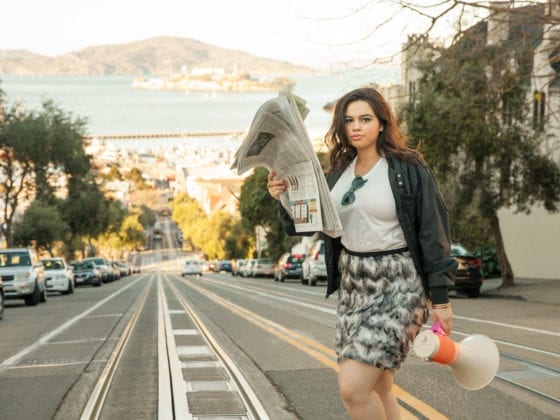The other day, I received feedback that my social media response had not been up to par regarding current events related to racial injustice.
I took the feedback in stride and returned to my ongoing research on the topics of racism, discrimination, white supremacy and prison reform, curating what I thought was practical information (documentaries to watch, ways to support the cause, books to read, statistics and historical facts) and sharing it to stand in (digital) support.
I agree that I could’ve done that sooner. However, as I was posting, I couldn’t help but think: If your response to white privilege and racism is limited to sharing social media posts, or those posts precede you perpetuating anti-black behavior in your family, your social groups, your faith community, your workplace, yourself, then your activism is performative.
If your response to white privilege and racism is limited to sharing social media posts then your activism is performative.
What are some “online activists” doing to help secure a more just society, beyond sharing content? Many take their ally badges granted by social media forces and dust it off, no other necessary actions taken. Next season, their social media posts will cover a new contemporary issue.
Social media is a tool, one of many. It’s a complement to the real, daily, in-person work. Does what we preach online align with the way we live our lives? Away from and in spite of public scrutiny, are we acting in accordance to our values? Have we taken the time to re-evaluate those values and make sure we’re self-actualizing so that we can, in turn, upgrade the limping society we live in?
Social media is a tool, one of many. It’s a complement to the real, daily, in-person work.
Being able to go on daily runs and laughing at nothings as a form of self-care without fear are privileges that some do not have. I am painfully aware. I have taken time to find a patch of grass to sit on and pick up the phone, write or read on the matter, thankful for another (masked) breath of air others were atrociously stripped away of the right to take. With an inhale, I put pen to paper and time into action. Instagram is an afterthought.
The bulk of our lives—the rage, the love, the grief and the incidents—is away from screens and social media. As it should, I will spend less time reposting overshared social content and instead text a governor and call my black friends, ask questions, sign petitions, offer my help, listen, lighten a load, welcome a stranger, read to increase my knowledge and understanding of the issue, donate, call out discrimination, stand in a Union Square protest or support a black business, organization or artist.
The bulk of our lives—the rage, the love, the grief and the incidents—is away from screens and social media.
Every day and in the long run, beyond the urgency of current events, I pledge, again and again, to do that. I believe that‘s more valuable than breaking your silence with some swift and seasonal social posts that are just seasoning on a plate of struggle.
The likes and comments and views on your Instagram aren’t a measure of your real efforts to combat racism where you can. Only powerful and sustained practices will chip away at dismantling centuries-old structural inequities and discrimination.
As an ally, however you choose to help and stand with black people—just make sure you do it with all the honesty, empathy and passion you’ve got in you. It’s crucial you do it, every day and in the long run.










